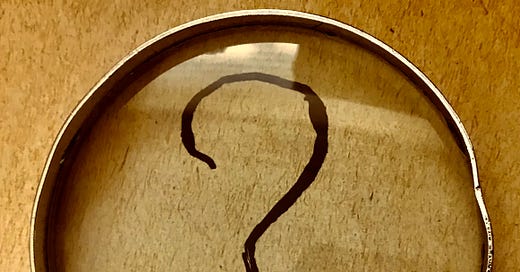VIII
The Spitalfields Market was a restless wasps’ nest of activity. Countless voices buzzed between its high brick walls, hovering over the swarms of bodies that rolled and flitted in and out and around the stalls and barrows lining the open floor.
Towers of crates, sacks and baskets teetered beside each stall, while every barrow over-flowed with the autumnal colours of fruits and vegetables. Men in flat caps and aprons stood alongside each, holding up and hollering about their wares. From other stalls came the coppery scent of blood as butchers, their leather aprons splashed crimson, hacked and chopped livestock into rows of cuts above which, bound by their feet, hung freshly-killed rabbits and fowl. The cold scent of the fresh meat fought to allure against a cresting wave of spices, coffee and the earthy smell of the produce.
Hawkers yelled, “Come buy! Come buy!” and swore to the quality of their roasted chestnuts, their “very fine potatoes,” their matches and pencils and their “well-ground sawdust,” all to be had for a few pence. Ladies and girls, too, hawked their wares – daises and roses, buttons, and ribbons – while young boys screamed about ha’penny morning editions and two-penny shoeshines. The hoarse accents of Jews – Russian, Polish and German – swore to the perfection of their piping hot loaves and toasted bagels and the excellence of their Jewish tobacco and coffee, if there really was such a distinct thing.
Sunlight broke through the grime-streaked glass panels of the vaulted roof, throwing watery shadows over the Saturday morning crowd. Cole paused a moment inside the open archway on the Commercial Street side of the market, giving his eyes time to adjust to the sudden dimness. The girl had been easy to pick off when, under his diligent and distant watch, she’d left her home and skipped along the street, basket swinging in her hand. Her golden pigtails, knotted with violet ribbons, sprouted from beneath a wide-brimmed boater that also trailed ribbons. The rest of her was wrapped in wool dresses and an ulster, all in emerald. Every newsboy and shopkeeper knew her by sight and wished her good morning as she’d passed.
Now, as she went under the archway, she was not so easy to spy amongst the twisting bodies and pounding feet and the haze of kicked-up dust. But he spotted her braids and ribbons soon enough and quickened his pace and tightened his distance. When she stopped, he did likewise. He would close on her soon enough but not just yet. He was interested in her – in her demeanour. There was nothing forlorn, no sense of loss or worry. Instead, Milly Bloom went about the market as any happy child might. She paused to pat the horses’ muzzles and to sample the bites of cakes and breads the charmed bakers gladly provided, and to applaud the white-headed capuchin who danced to an organ-grinder’s grating tune.
For more than thirty minutes, Cole watched as the girl, handing over a penny here and there, slowly filled her basket with groceries. Soon her gait was slanted, the basket’s weight uncomfortable. She was set to leave.
A proud baker grabbed her arm as she passed, waving to a display of glazed pastries on his barrow. Milly beamed and pointed to a strawberry smeared concoction, but frowned when she realised she’d spent all but a farthing – not enough to reward herself with a final treat.
“Oh please, sir! I should very much like to try it. I will send ten more people to you if only you let me.”
Cole smiled at the display. The baker soured but seemed reluctant to disappoint the girl. Her charm had nearly shattered his resolve.
To spare him the agony, Cole stepped forward and placed a coin in the man’s palm:
Keep reading with a 7-day free trial
Subscribe to The Case-Book of Adam Cole to keep reading this post and get 7 days of free access to the full post archives.



